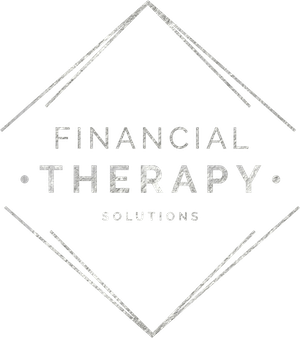How Financial Therapy Can Change Your Life
by Wendy Wright, LMFT, Financial Therapist
Many people recognize their struggles with money management or the negative feelings they associate with spending and saving, but they don’t know how to seek help. That’s where financial therapy comes in!
What Is Financial Therapy?
You may be wondering, “What exactly is financial therapy?” A relatively new field within the world of therapy, financial therapy combines financial counseling, money management support, and mental health treatments. Depending on your personal needs, it can be:
- a place to talk through your money story
- support for building a business plan that works
- an invitation to forgive yourself for past money decisions
- a place to talk about the emotional impact of inherited wealth
A financial therapist can help you better understand how money shows up in your life. It goes beyond simply focusing on budgets, goals, and retirement plans and instead looks at the way you think, feel, and behave with your money. With the proper help, you can overcome the roadblocks that make it difficult for you to make smart financial decisions and move towards long-term, sustainable solutions.
Do I Need Financial Therapy?
Your next question may be, “Well, how do I know if I need financial therapy?” To be honest, I believe that everyone can benefit from financial therapy. As a good starting point, I suggest asking yourself a few questions like:
Would it be helpful to have a judgment-free zone to talk about money?
Would I benefit from more understanding of my money patterns and behaviors?
How do I define my relationship with money?
If you’re looking for more tangible exercises to complete, consider the two ideas below.
First, rename one of your bank accounts to reflect a future goal.
I believe that, when you connect emotionally to your savings, you’re more likely to save. Even better, research supports this idea! Klontz conducted a study and saw people’s savings rates increase by up to 73 percent when they got fully and emotionally engaged in why they were setting money aside.
So if you want to take your family to Disney World in the next three years, name it, “Disney World 2025.” If you’re focused on paying off your student loans, call it, “A Debt-Free Me.” Now, every time you open up your bank accounts, you’ll have a visual reminder — a guard rail, if you will — to keep you on track.
Next, track your expenses.
Rather than adding them to a digital spreadsheet, write them down by hand. (Download a copy of my tracking worksheet bundle now!) This practice helps you truly recognize and acknowledge each purchase. Include the item, the cost, the emotion behind the purchase, and how it made you feel. See if the reason why you bought something matches the post-purchase feelings it gives you.
Do these questions and exercises resonate with you? It may be time to further explore financial therapy and the impact it can have on your life. Book a discovery call with a member of the Financial Therapy Solutions team.
The Team at Financial Therapy Solutions
Speaking of our team, I’m excited to share that we’re continuing to grow! We now have a team of therapists trained in my 10 Principles of Financial Therapy©. The focus of our group practice is to guide our clients through the intersection of money and emotions, helping them reach and maintain their financial goals. We approach each session with zero judgment and abundant, compassionate curiosity. The team is available for telehealth sessions.
For more financial therapy tips and recommendations, join my mailing list! Sign up today and receive my free, downloadable workbook, “Get the Life You Want With the Money You Have.”

 [testimonials_slider no_cache=true random=true paging=true]
[testimonials_slider no_cache=true random=true paging=true] 



